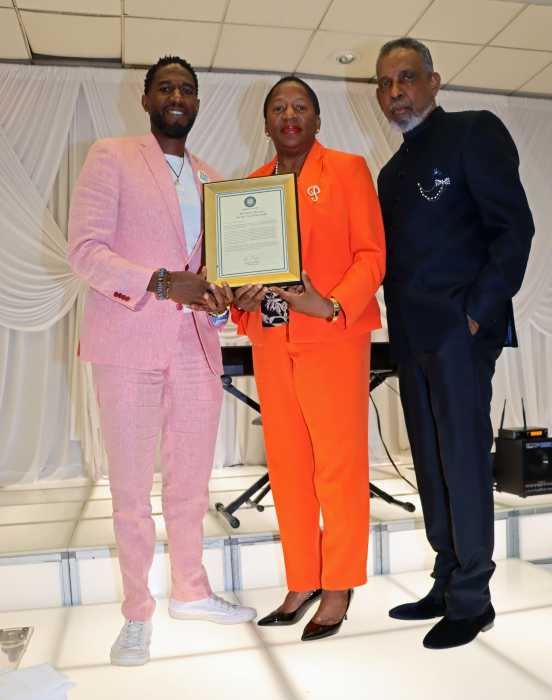Research points to pressing economic need for marriage rights among black couples
According to the first ever in-depth study of black same-sex households, those families have more to lose than their white counterparts if proposed state and federal anti-gay marriage ballot initiatives are approved.
“Tens of thousands of black same-sex couples, most of them raising children, will be disproportionately harmed in comparison with white same-sex couples for many reasons, including a higher prevalence of parenting, lower relative income, lower home ownership rates, and greater prevalence of public sector employment,” said a report prepared by the National Gay and Lesbian Task Force, the nation’s oldest gay and lesbian rights organization, and the National Black Justice Coalition, a new group of African-American gay and lesbian same-sex marriage proponents.
Researchers analyzed data from the 2000 census to document the demographics of black same-sex couples nationwide. The report claims to refute “common stereotypes that lesbian and gay people are overwhelmingly white, wealthy, do not have children, and are unable to maintain stable, long-term relationships.”
The study found that there are nearly 600,000 same-sex couples in the United States, and that almost 85,000, or 14 percent, include at least one black person. According to the study, both black female and male same-sex couples parent children at nearly twice the rate of their gay and lesbian counterparts.
Mandy Carter of Southerners on New Ground, a multi-racial lesbian advocacy group, believes the reason for this is cultural. Extended families are a typical component in many African Americans’ upbringings, where older relatives may be raising nephews and nieces of other family members’ children.
Nationwide, black same-sex couples face perilous economic and health conditions, according to the newly released research. The implications, according to the report, are that anti-marriage amendments will impact more harmfully on black same-sex couples and their families because “they are already economically disadvantaged compared to Black married opposite-sex couples, as well as compared to White same-sex couples.”
Gay white male households earn $20,000 more in median annual household income than their black counterparts, while lesbian white couples earn $18,000 more than their black counterparts. In addition, the report found that black same-sex couples report lower income than black married heterosexual couples.
Same-sex marriage advocates point to more than 1,100 federal benefits and protections available to married couples that same-sex couples cannot access. The statistic is frequently cited as the primary inequity faced by same-sex couples not allowed to marry.
The report also found that fewer black same-sex couples own their homes than white same-sex couples or married black couples, even though black same-sex couples are reportedly just as likely to have lived in the same residence as five years earlier.
The report pointed out two other statistics of note. Black men and women in same-sex households have a lower education level than their white counterparts and a substantial number of black gays and lesbians in long-term relationships serve in the military. The report states that partnered black women in same-sex households report veteran status at nearly four times the rate of black women married to a male partner (11 percent vs. 3 percent) while black men in same-sex households enlisted at nearly two-thirds the rate of black married men (18 percent vs. 31 percent).
Alexander Robinson, strategic director of the National Black Justice Coalition, said the report demonstrates that black gay people are integrated into every African-American community, and not just urban places. He believes it shows that black same-sex partners are parenting children at a much higher rate than previously expected, and so they serve in the military to improve their economic opportunities. He said black same-sex households should “have family homes that only just laws of a just society can provide for all Americans.”
New York City has the largest number of black same-sex households of any U.S. city. The 2000 census counts 10,450 black gay and lesbian couples while in Detroit there are 2,337. However, given the population disparity between the two cities, the rate of black same-sex household formation was roughly the same. Incomes for these black gay and lesbian couples are similar, around $50,000 (slightly higher for men and lower for women), and about half of those couples are raising children.


































